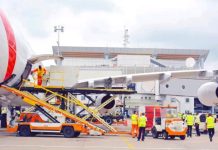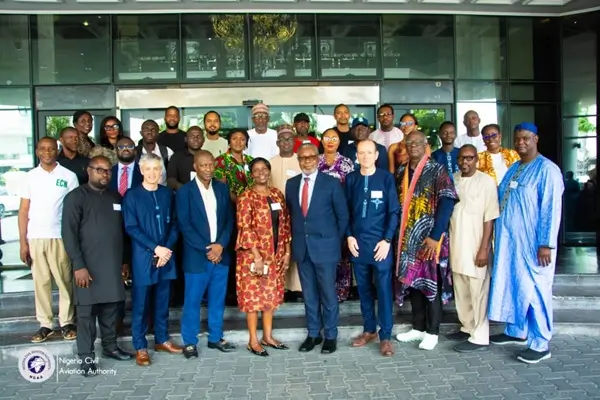Nigeria has taken a leading role in advancing Sustainable Aviation Fuel (SAF) development in Africa by hosting a high-level regional workshop focused on access to finance for SAF production. Held in Lagos from May 5 to 9, 2025, the workshop brought together stakeholders from 14 African countries, international financial institutions, SAF project developers, and global aviation regulators.
Organised by the Nigerian Civil Aviation Authority (NCAA) in collaboration with the National Council on Climate Change Secretariat (NCCCS) and the European Union Aviation Safety Agency (EASA), the workshop formed part of the ACT-SAF Africa–India Project, a global initiative aimed at building capacity for sustainable aviation in emerging regions.
Themed “Access to Finance for SAF Production,” the workshop addressed investment mobilisation, risk mitigation, project bankability, and funding models for SAF production. It also covered key areas such as environmental sustainability frameworks, technology pathways, and infrastructure development.
One of the major highlights of the event was the inauguration of six Technical Working Groups (TWGs) by NCAA Director General, Capt. Chris Najomo, represented by Lagos Regional Manager, Bukola Teriba. These TWGs will focus on key pillars of Nigeria’s SAF roadmap — policy and regulation, feedstock sourcing, funding and investment, technology and innovation, environmental and social impact, and infrastructure and logistics.
Capt. Najomo stressed the critical importance of finance in enabling SAF projects and reiterated Nigeria’s commitment to the International Civil Aviation Organization’s (ICAO) long-term aspirational goal of achieving net-zero carbon emissions by 2050. He noted that SAF development is not only vital for reducing the aviation industry’s carbon footprint but also positions Nigeria as a leader in the continent’s energy transition.
The workshop deepened understanding of SAF supply chains and financial assessment tools, showcased global best practices in SAF financing, and identified key actors in the finance sector. It provided a platform for government policymakers, financiers, SAF developers, and regulators to collaborate on viable SAF production strategies.
Coordinated by NCAA’s Directorate of Air Transport Regulations, the event featured participation from ICAO, the African Civil Aviation Commission (AFCAC), EU delegations to Nigeria and WACAF, development partners, and other industry stakeholders. With the launch of the TWGs and Nigeria’s proactive engagement, the country is now well-positioned to lead the push for sustainable aviation fuel adoption in Africa.













